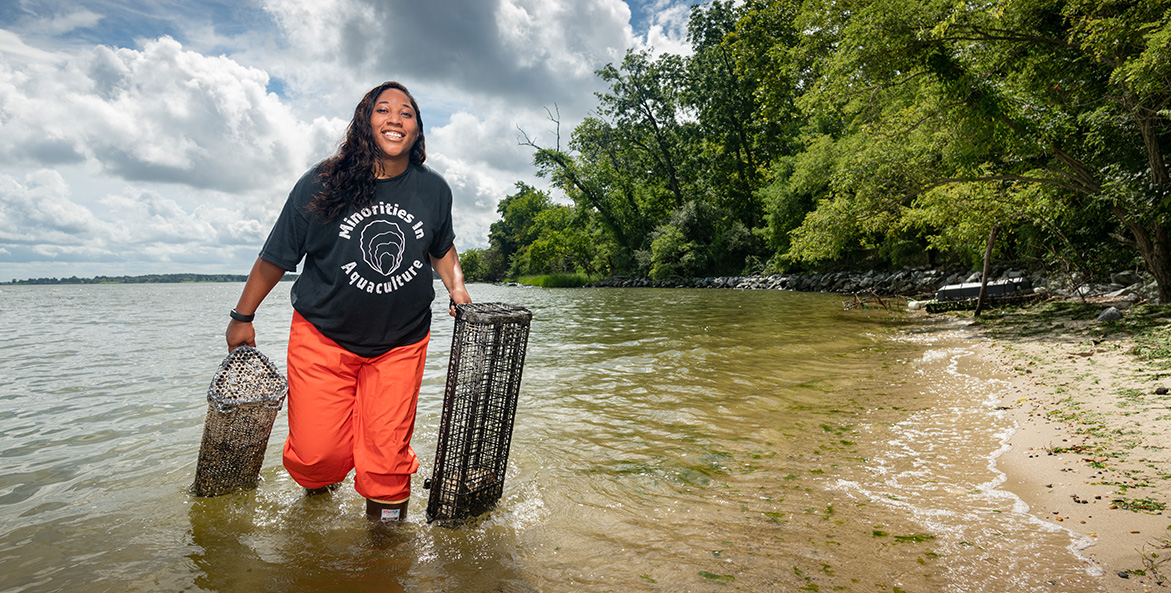Election Day has passed and we at CBF are cautiously optimistic that thanks to the Bay restoration movement's long history of bipartisanship, elected officials from both parties will continue to make progress toward our clean water goals. But it's not something we can take for granted. With less than three years to the 2025 Chesapeake Clean Water Blueprint deadline, every election counts. At the end of the day, Bay restoration moves forward only when the people of the watershed take and demand action in their own communities—whether it be turning a church parking lot into an urban garden, rallying for the cleanup of a toxic Superfund site, changing the status quo in the oyster world, or implementing environmentally-friendly practices at a local Islamic community center. This month, we share resources for how you can get involved in speaking up for the Bay every day—not just on Election Day. Your voices are critical to saving the Bay, and with the 2023 legislative season just around the corner, we'll need you every step of the way. For other big headlines, check out our monthly news round-up.
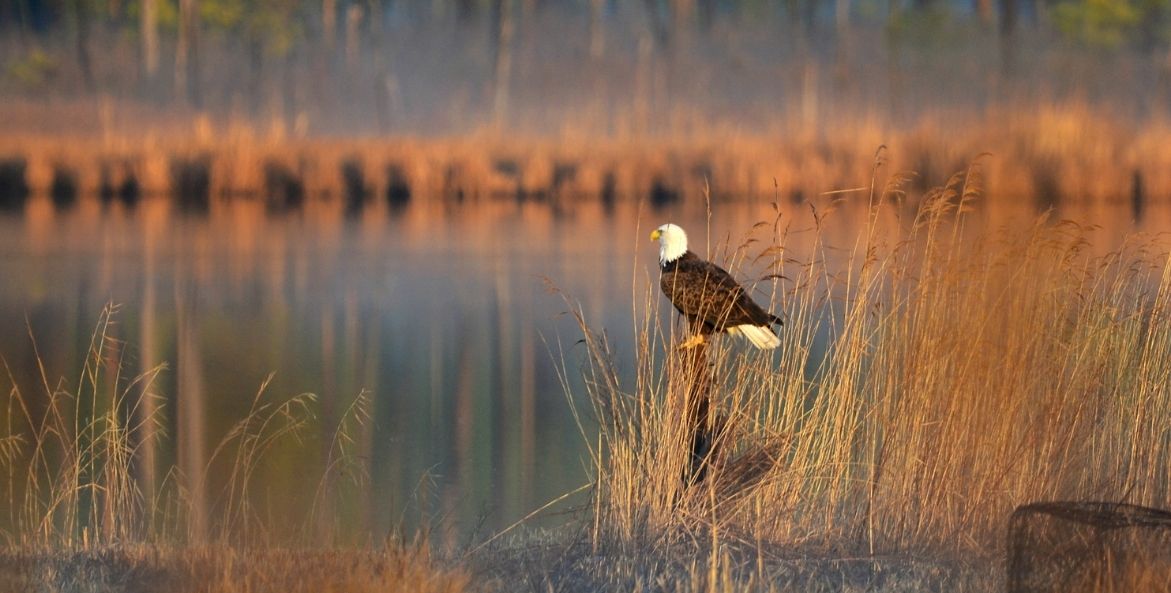
Debra Brown
Vote for the Bay Every Day
Election Day isn't the only day you can show your support for the Bay. Throughout the year, you can urge elected officials at every level to support Bay-friendly regulations and legislation in a variety of ways—from writing letters to media outlets to testifying at public hearings. Check out our Advocacy Guide to learn more.
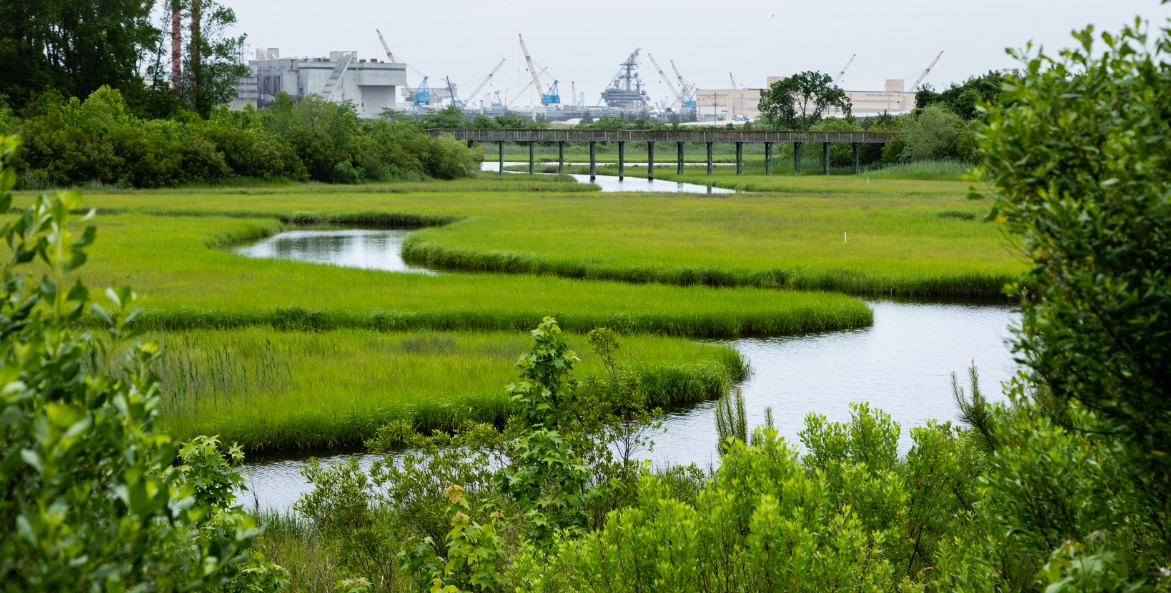
A paddle launch offers access to the wetlands at Paradise Creek Nature Park in Portsmouth, Virginia.
Will Parson/Chesapeake Bay Program
Portsmouth's Toxic Legacy
The long-shuttered metal recycling operation near Paradise Creek in Portsmouth, Virginia, known as Peck Iron and Metal left a legacy of toxic pollution. In 2009, it was declared a Superfund site. Now, with cleanup plans finally moving forward, residents are advocating for strong protections as they worry about long-term effects on their health.
VIDEO: From Parking Lot to Produce
How do you provide fresh produce in a community with few grocery stores, reduce polluted runoff, and build a healthier community? Second Baptist Church in Richmond, Virginia teamed up with CBF to create an urban farm while treating the stormwater runoff from its large roof and parking lot, helping address a growing source of pollution in the watershed.
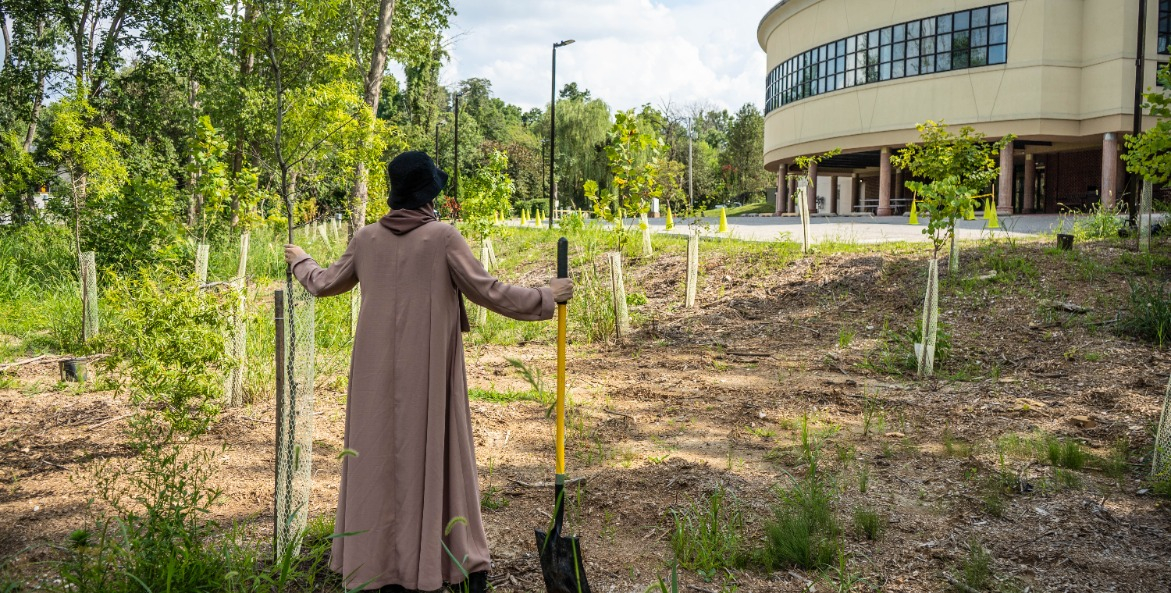
Improving water quality through tree plantings and stormwater projects is just part of the Islamic Society of Baltimore Green Team's multifaceted initiative to raise environmental consciousness and improve the health of the community.
Frish Media & Marketing
Be the Change
"We don't realize that the small things that we do in this life, even just a positive thought or a negative thought, has energy, and that energy has an effect on everybody else in the room," says Ayanna Miranda of the Islamic Society of Baltimore's Green Team. That means caring for nature and each other.
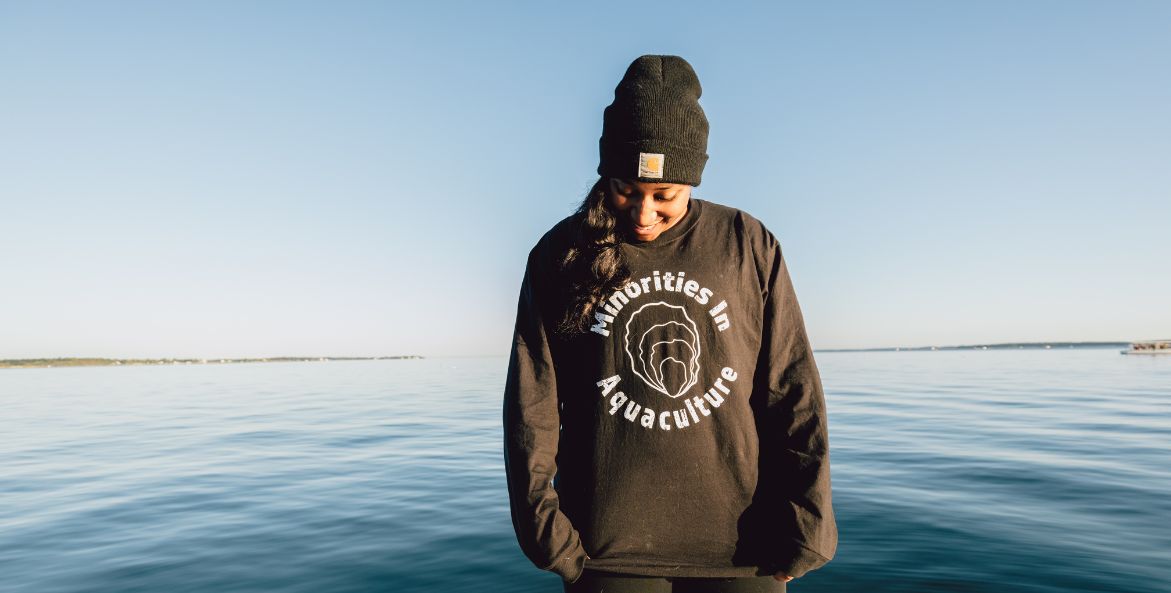
Imani Black founded Minorities in Aquaculture, giving women a community of empowerment, resources for career development, and a chance to build connections with the Chesapeake Bay.
Imani Black
A Bay Without Borders
The Bay's aquaculture industry is deeply intertwined with African American history. Yet Imani Black noticed that the industry largely lacks a certain demographic—women of color. Driven by her own love for the Bay and the experiences she has shared with friends and family, she founded the nonprofit Minorities in Aquaculture (MIA) to change the status quo.
VIDEO: Around the Bay in 60 Seconds
In this month's news roundup: An updated assessment of the striped bass population offers cautious hope; a new report details the economic impact of investing in conservation practices on farms; the Keystone 10 Million Trees Partnership marks its halfway milestone in Pennsylvania; new grants and partnerships will help restore freshwater mussels and oysters; and more.
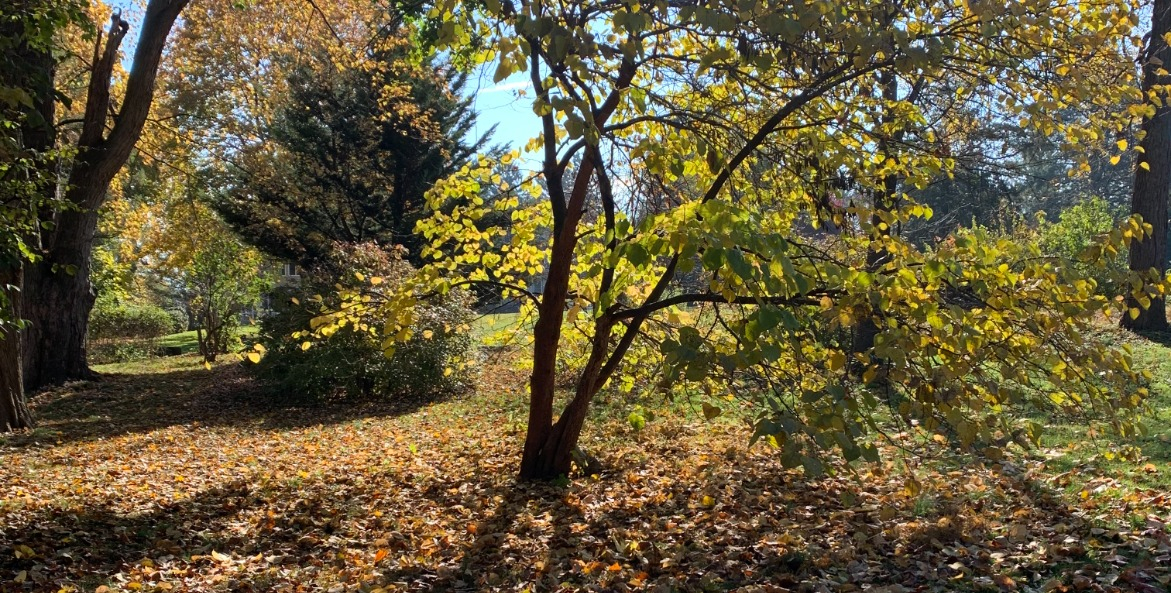
Fallen leaves—when left on the ground—provide benefits to the health of soil, plants, wildlife, and water quality.
Harry Campbell/CBF Staff
What You Can Do
- 2023 legislative sessions will be kicking off before you know it, and things move quickly. Stay-up-to-date on all things related to Bay advocacy by joining our SMS alert network.
- Wait, don't rake! Find out how fallen leaves can help the Bay and your yard.
- Our work together to save the Bay continues all winter long. Donate today to help us reach our $30,000 fall fundraising goal by November 19.

